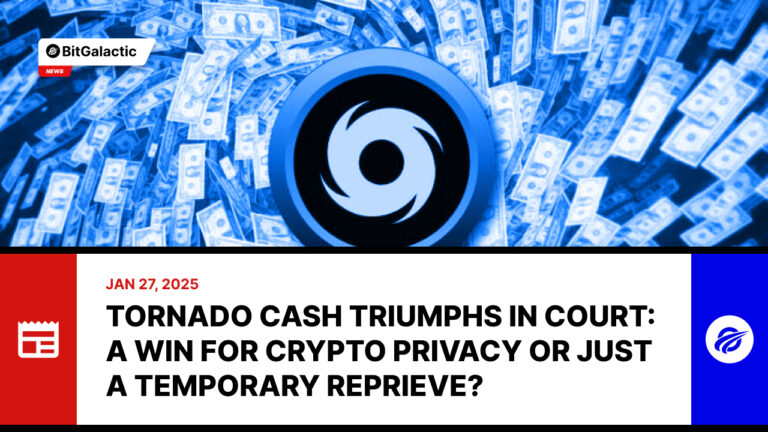Tornado Cash Triumphs in Court: A Win for Crypto Privacy or Just a Temporary Reprieve?
The cryptocurrency world erupted this week as Tornado Cash’s legal battle saw a major victory for crypto privacy advocates, though the aftermath has left the associated token, TORN, on a volatile trajectory. After surging 150% midweek, TORN tumbled by over a third in just 24 hours. The cause? A groundbreaking appellate court decision that questions the U.S. Treasury’s authority to sanction smart contracts, setting a precedent that could reshape the legal landscape for decentralized platforms.
Court’s Decision Shakes Sanctions
The drama began when the U.S. government chose not to challenge a court ruling that undermined sanctions on Tornado Cash. This decision has been hailed as an “absolute win” by crypto advocates, including Preston Van Loon, a plaintiff in the case. “This is a win for unstoppable applications, online financial privacy, and decentralization,” Van Loon declared on X (formerly Twitter).
But beneath the celebration lies a cautionary tale. Tornado Cash, a tool for obfuscating blockchain transactions, has been a lightning rod for controversy. In 2022, it was sanctioned by the U.S. Treasury’s Office of Foreign Assets Control (OFAC) due to its use by North Korean hackers to launder stolen cryptocurrency. These funds allegedly financed the rogue nation’s nuclear weapons program.
The appellate court’s decision now calls into question whether sanctions targeting smart contracts—a form of immutable software code—are legally valid. “Tornado Cash’s immutable smart contracts are not the ‘property’ of any foreign entity,” the court ruled, adding that outdated laws like the International Emergency Economic Powers Act cannot effectively regulate modern technologies like blockchain.
BitGalactic’s Take: Victory or Illusion?
From BitGalactic’s perspective, the ruling is both a triumph and a test for the crypto community. On one hand, it underscores the resilience of decentralized systems and their potential to protect financial privacy. On the other, it exposes a gaping hole in regulatory frameworks that could leave room for further misuse.
“This isn’t just a legal victory; it’s a wake-up call for governments worldwide,” said a spokesperson for BitGalactic. “We’re witnessing the growing pains of a technology that challenges traditional notions of ownership, privacy, and control.”
A Tool or a Threat?
The Tornado Cash controversy has made it a cause célèbre among crypto privacy advocates. Many argue that banning a tool because it can be misused sets a dangerous precedent. Would governments ban email because criminals use it to communicate? Or ban hammers because they can be weapons?
Crypto advocates point to legitimate use cases for Tornado Cash. For instance, co-plaintiff Tyler Almeida used the platform to donate to Ukraine without fear of retaliation from Russian hackers. Similarly, crypto think tanks have argued that Tornado Cash, like the internet itself, is overwhelmingly used for socially beneficial purposes despite its potential for abuse.
The Bigger Picture: Legal Limbo
Despite the court’s decision, the future of Tornado Cash remains uncertain. Legal experts warn that this ruling only addresses whether smart contracts can be sanctioned—not whether developers or users of such tools are immune from prosecution.
Two Tornado Cash developers, Roman Storm and Alexey Pertsev, remain embroiled in legal battles. Storm faces multiple charges in the U.S. for money laundering and violating sanctions, while Pertsev was sentenced to five years in a Dutch prison. Appeals are ongoing, but their fates highlight the fine line between writing code and enabling criminal activity.
What’s Next for Crypto Privacy?
The U.S. Treasury now faces a choice: escalate the case to the Supreme Court or accept the appellate court’s decision. Legal experts, however, doubt a Supreme Court appeal is likely. Instead, Congress may need to draft new legislation to address blockchain technology.
BitGalactic sees this as a pivotal moment. “This case has shown the strength of decentralization but also its vulnerabilities. While privacy is critical, the industry must demonstrate accountability to avoid draconian measures in the future,” their spokesperson concluded.
For now, the crypto world waits with bated breath as Tornado Cash’s story unfolds—an ongoing clash between privacy advocates, regulators, and the limits of the law.
Share this post


